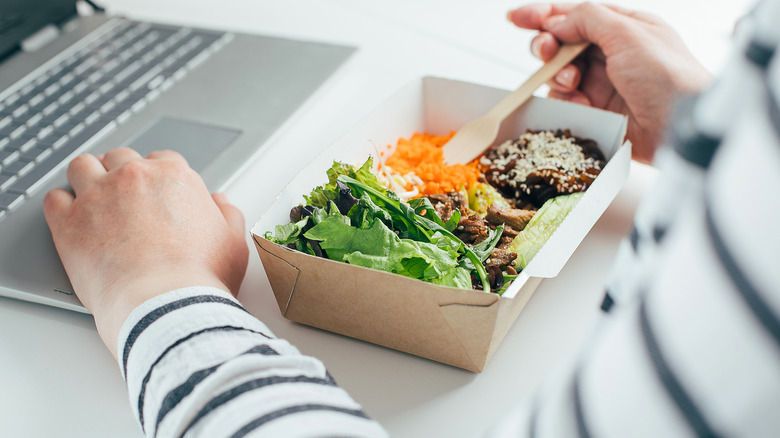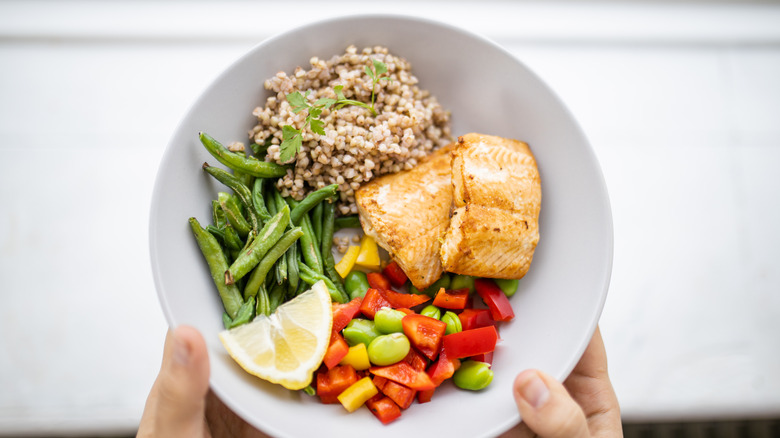Why You Might Gain Weight When You Eat Too Much Healthy Food
It can be frustrating if you're in the habit of showing up to your favorite SoulCycle class, eating a healthy diet, and yet still gaining weight. Unfortunately, weight gain can happen even when making healthy lifestyle choices.
According to Healthline, unintentional weight gain can happen for several reasons, including lack of sleep, feeling stressed for extended periods, or an underlying medical condition. However, if none of these apply to you, and you've adopted a healthy diet consisting of a wide variety of whole foods, then you may need to take a look at specific eating habits.
This may include monitoring your portion sizes to prevent consuming excess calories. Many foods rich in nutrients can still be calorie-dense, and we may be overeating them without knowing the effects, such as unintended weight gain if not eaten in moderation (via Eat This, Not That). Here's what to know about controlling portion sizes of healthy foods.
Why portion control matters with healthy food
It may be surprising to hear that portion control is a key factor in maintaining a healthy weight, even if the food you're eating is considered healthy. That's because weight gain can still occur if we consume more calories than we're burning (via Eat This, Not That).
"There is a misconception that if a food is considered 'healthy', you can eat as much of it as you want," Amy Goodson, registered dietician and author of "The Sports Nutrition Playbook," tells Eat This, Not That. "The reality is that is not true. Foods like avocados, nuts, nut butters, hummus, cauliflower crust pizza, etc. are nutrient-rich for sure, but they still provide calories and thus you have still need to watch your portion sizes."
By focusing on getting a wide variety of nutrient-dense foods, sticking to healthy portion sizes, and being mindful of calorie intake, you can have a better chance at avoiding unintended weight gain through your diet.


